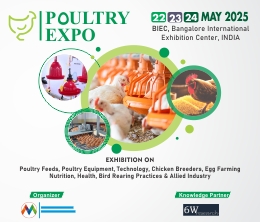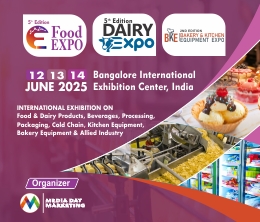Nigeria Metal Packaging Market (2025-2031) | Value, Companies, Growth, Outlook, Trends, Share, Revenue, Size, Industry, Analysis & Forecast
Market Forecast By Material (Steel, Aluminum, Others), By Product Type (Cans, Caps & Closures, Drums & Barrels, Others), By End User (Food, Beverage, Personal Care, Healthcare, Others) And Competitive Landscape
| Product Code: ETC028389 | Publication Date: Oct 2020 | Updated Date: Jan 2025 | Product Type: Report | |
| Publisher: 6Wresearch | No. of Pages: 70 | No. of Figures: 35 | No. of Tables: 5 | |
Nigeria Metal Packaging Market Highlights
| Report Name | Nigeria Metal Packaging Market |
| Forecast period | 2025-2031 |
| Market Size | USD 11 Billion – USD 17 Billion |
| CAGR | 9.6% |
| Growing Sector | Industrial Manufacturing |
Topics Covered in the Nigeria Metal Packaging Market Report
The Nigeria Metal Packaging report thoroughly covers the market by type and by end user. The report provides an unbiased and detailed analysis of the on-going market trends, opportunities/high growth areas, and market drivers which would help the stakeholders to devise and align their market strategies according to the current and future market dynamics.
Nigeria Metal Packaging Market Size & Analysis
In 2025, the Nigeria Metal Packaging market is valued at approximately $ 11 billion, with a projected compound annual growth rate (CAGR) of 9.6% over the next five years. Additionally, by 2031, the market is expected to reach around $ 17 billion. The industrial manufacturing sector holds significant position in the overall market.
Nigeria Metal Packaging Market Synopsis
The metal packaging market in Nigeria is experiencing steady growth, fueled by the country's expanding food and beverage industry, urbanization, and increasing consumer demand for durable and sustainable packaging solutions. With a population exceeding 200 million, Nigeria presents a significant market opportunity, particularly for metal cans and containers used in beverages, processed foods, and household products. The rise of e-commerce and retail chains is further driving the need for efficient packaging that ensures product safety and integrity during transportation and storage. Furthermore, the Nigerian government's initiatives to promote local manufacturing and reduce reliance on imported packaging materials are encouraging investment in the metal packaging sector. As manufacturers increasingly adopt innovative technologies and sustainable practices, the market is expected to continue its upward trajectory, supported by a growing awareness of the environmental benefits of metal packaging.
According to 6Wresearch, Nigeria Metal Packaging market size is projected to grow at a CAGR of 9.6% during 2025-2031. The growth of the metal packaging market in Nigeria is driven by several key factors, including the rapid expansion of the food and beverage sector, increasing urbanization, and a rising middle class that demands convenience and quality in packaging. The growing trend towards sustainability is also a significant driver, as metal packaging is widely recognized for its recyclability and ability to preserve product freshness, aligning with consumer preferences for eco-friendly options.
Additionally, government initiatives aimed at boosting local manufacturing and reducing import dependency are encouraging investments in the metal packaging industry. However, the Nigeria Metal Packaging industry faces challenges such as fluctuating raw material prices, particularly for aluminum and steel, which can impact production costs. Furthermore, inadequate infrastructure and logistical challenges in transportation and distribution can hinder market growth. Additionally, the prevalence of informal market players poses a challenge to established companies, as they often offer lower-priced alternatives, making it difficult for the formal sector to compete on price while maintaining quality standards. Addressing these challenges will be crucial for sustaining growth in Nigeria's metal packaging market.
Nigeria Metal Packaging Market Trends
- Sustainability Focus: Increased consumer awareness and demand for environmentally friendly packaging solutions, driving the preference for recyclable metal packaging.
- Innovation in Packaging Design: Growing adoption of advanced designs, including easy-open and resealable cans, enhancing convenience for consumers.
- Rise of E-commerce: Expansion of online retail channels leading to increased demand for durable and safe packaging for shipped products.
- Urbanization: Rapid urbanization resulting in changing consumer lifestyles and increasing demand for packaged food and beverages.
- Growth of Craft Beverages: The burgeoning craft beverage industry is promoting innovative metal packaging solutions tailored to niche markets.
- Health and Safety Concerns: Increased focus on food safety and quality, with metal packaging offering superior preservation and protection of products.
Investment Opportunities in the Nigeria Metal Packaging Market
- Local Manufacturing Facilities: Establishing or investing in local manufacturing plants to reduce import dependence and cater to the growing demand for metal packaging solutions.
- Recycling Initiatives: Investing in recycling technologies and facilities to capitalize on the increasing focus on sustainability and eco-friendly practices.
- Product Innovation: Funding research and development for innovative packaging designs, such as lightweight cans, multi-pack options, and sustainable materials.
- E-commerce Solutions: Developing packaging solutions tailored for e-commerce, including durable, lightweight, and secure packaging for shipping.
- Expansion in Emerging Markets: Targeting rural and semi-urban areas with customized metal packaging solutions that cater to local consumer preferences.
Key Players in the Nigeria Metal Packaging Market
The Nigeria metal packaging market features several key players that are pivotal to its growth and innovation. Prominent companies include Nigerian Breweries Plc, which utilizes metal packaging for its wide range of beverages, and Crown Holdings, a global leader in metal packaging solutions with a significant presence in Nigeria. Nampak Nigeria Plc is another major player, specializing in producing a variety of metal cans and containers for food and beverage applications.
Novelis focuses on aluminum products and recycling, contributing to sustainable packaging solutions. Kraft Heinz Nigeria also plays a critical role in the market, emphasizing high-quality packaging for its food products. Additionally, some of these players hold majority of the Nigeria Metal Packaging market share. Moreover, local manufacturers are emerging, leveraging government incentives to boost domestic production and compete with international firms, fostering a dynamic landscape in the metal packaging sector.
Government Regulations in the Nigeria Metal Packaging Market
The metal packaging market in Nigeria is influenced by several government regulations aimed at promoting safety, sustainability, and local production. The National Agency for Food and Drug Administration and Control (NAFDAC) enforces strict standards for packaging materials, ensuring that they meet health and safety guidelines to protect consumers from harmful substances. Additionally, the Nigerian government has implemented policies encouraging local manufacturing and reducing reliance on imported packaging products, aligning with the Economic Recovery and Growth Plan (ERGP).
Regulations related to recycling and waste management are also becoming increasingly stringent, compelling companies to adopt sustainable practices in their production processes. Furthermore, the Nigerian Industrial Standards (NIS) provide benchmarks for quality and safety, guiding manufacturers in maintaining high standards in metal packaging. Further, these initiatives have further boosted the Nigeria Metal Packaging market revenues. Moreover, as sustainability becomes a global priority, the government is likely to enhance regulations that promote eco-friendly materials and practices within the packaging industry, encouraging investments in innovative and sustainable packaging solutions.
Future Insights of the Nigeria Metal Packaging Market
The future of the Nigeria metal packaging market looks promising, driven by several dynamic trends and consumer demands. With a growing focus on sustainability, the market is expected to see increased investment in recyclable materials and eco-friendly manufacturing processes, aligning with global environmental goals. As urbanization continues to rise, the demand for convenient and ready-to-eat food and beverage products will fuel the need for innovative packaging solutions. The expansion of e-commerce will also drive the growth of durable and secure metal packaging options tailored for online sales.
Furthermore, the rising craft beverage industry is likely to create new opportunities for customized metal packaging designs. Technological advancements in production techniques, such as improved coating and printing technologies, will enhance product differentiation and quality. Overall, the Nigerian metal packaging market is poised for significant growth, presenting abundant opportunities for investors and companies that can adapt to changing consumer preferences and regulatory landscapes.
Steel Category to Dominate the Market - By Material
According to Ravi Bhandari, Research Head, 6Wresearch, the steel category in the Nigeria metal packaging market is experiencing notable growth, driven by its durability, recyclability, and increasing demand across various sectors. As consumer preferences shift towards sustainable and long-lasting packaging solutions, steel's intrinsic properties, such as resistance to corrosion and ability to preserve product integrity, are becoming more appealing to manufacturers and consumers alike.
The beverage industry, particularly soft drinks and beer, is a significant contributor to this growth, as companies increasingly opt for steel cans over alternative materials due to their lightweight nature and reduced environmental impact. Additionally, advancements in production technologies are enhancing the efficiency and cost-effectiveness of steel packaging, further stimulating its adoption. With the ongoing emphasis on recycling and sustainability, the steel category is positioned to capitalize on these trends, reinforcing its presence in the Nigerian market and driving robust growth in the coming years.
Cans Type to Dominate the Market – By Product Type
The cans type segment in the Nigeria metal packaging market is witnessing substantial growth, largely fueled by the increasing demand for beverages, particularly soft drinks and alcoholic beverages. The preference for convenient and portable packaging options among consumers has propelled the popularity of aluminum and steel cans, as they offer lightweight, resealable, and recyclable solutions. Additionally, the rising trend of craft beverages has further diversified the market, with smaller producers seeking customized and aesthetically appealing can designs to attract consumers.
The shift towards sustainability is also driving this growth, as manufacturers increasingly focus on eco-friendly practices and materials; cans are highly recyclable and have a lower carbon footprint compared to other packaging options. As consumer awareness of environmental issues rises, the cans type segment is well-positioned for continued expansion, supported by innovations in can design and production technologies that enhance functionality and appeal.
Key Attractiveness of the Report
- 10 Years Market Numbers.
- Historical Data Starting from 2021 to 2024.
- Base Year - 2024.
- Forecast Data until 2031.
- Key Performance Indicators Impacting the Market.
- Major Upcoming Developments and Projects.
Key Highlights of the Report:
- Nigeria Metal Packaging Market Outlook
- Market Size of Nigeria Metal Packaging Market, 2024
- Forecast of Nigeria Metal Packaging Market, 2031
- Historical Data and Forecast of Nigeria Metal Packaging Revenues & Volume for the Period 2021-2031
- Nigeria Metal Packaging Market Trend Evolution
- Nigeria Metal Packaging Market Drivers and Challenges
- Nigeria Metal Packaging Price Trends
- Nigeria Metal Packaging Porter's Five Forces
- Nigeria Metal Packaging Industry Life Cycle
- Historical Data and Forecast of Nigeria Metal Packaging Market Revenues & Volume By Material for the Period 2021-2031
- Historical Data and Forecast of Nigeria Metal Packaging Market Revenues & Volume By Steel for the Period 2021-2031
- Historical Data and Forecast of Nigeria Metal Packaging Market Revenues & Volume By Aluminum for the Period 2021-2031
- Historical Data and Forecast of Nigeria Metal Packaging Market Revenues & Volume By Others for the Period 2021-2031
- Historical Data and Forecast of Nigeria Metal Packaging Market Revenues & Volume By Product Type for the Period 2021-2031
- Historical Data and Forecast of Nigeria Metal Packaging Market Revenues & Volume By Cans for the Period 2021-2031
- Historical Data and Forecast of Nigeria Metal Packaging Market Revenues & Volume By Caps & Closures for the Period 2021-2031
- Historical Data and Forecast of Nigeria Metal Packaging Market Revenues & Volume By Drums & Barrels for the Period 2021-2031
- Historical Data and Forecast of Nigeria Metal Packaging Market Revenues & Volume By Others for the Period 2021-2031
- Historical Data and Forecast of Nigeria Metal Packaging Market Revenues & Volume By End User for the Period 2021-2031
- Historical Data and Forecast of Nigeria Metal Packaging Market Revenues & Volume By Food for the Period 2021-2031
- Historical Data and Forecast of Nigeria Metal Packaging Market Revenues & Volume By Beverage for the Period 2021-2031
- Historical Data and Forecast of Nigeria Metal Packaging Market Revenues & Volume By Personal Care for the Period 2021-2031
- Historical Data and Forecast of Nigeria Metal Packaging Market Revenues & Volume By Healthcare for the Period 2021-2031
- Historical Data and Forecast of Nigeria Metal Packaging Market Revenues & Volume By Others for the Period 2021-2031
- Nigeria Metal Packaging Import Export Trade Statistics
- Market Opportunity Assessment By Material
- Market Opportunity Assessment By Product Type
- Market Opportunity Assessment By End User
- Nigeria Metal Packaging Top Companies Market Share
- Nigeria Metal Packaging Competitive Benchmarking By Technical and Operational Parameters
- Nigeria Metal Packaging Company Profiles
- Nigeria Metal Packaging Key Strategic Recommendations
Market Covered
The report offers a comprehensive study of the subsequent market segments:
By Material
- Steel
- Aluminum
- Others
By Product Type
- Cans
- Caps & Closures
- Drums & Barrels
- Others
By End User
- Food
- Beverage
- Personal Care
- Healthcare
- Others
Nigeria Metal Packaging Market (2025-2031): FAQs
| 1 Executive Summary |
| 2 Introduction |
| 2.1 Key Highlights of the Report |
| 2.2 Report Description |
| 2.3 Market Scope & Segmentation |
| 2.4 Research Methodology |
| 2.5 Assumptions |
| 3 Nigeria Metal Packaging Market Overview |
| 3.1 Nigeria Country Macro Economic Indicators |
| 3.2 Nigeria Metal Packaging Market Revenues & Volume, 2021 & 2031F |
| 3.3 Nigeria Metal Packaging Market - Industry Life Cycle |
| 3.4 Nigeria Metal Packaging Market - Porter's Five Forces |
| 3.5 Nigeria Metal Packaging Market Revenues & Volume Share, By Material, 2021 & 2031F |
| 3.6 Nigeria Metal Packaging Market Revenues & Volume Share, By Product Type, 2021 & 2031F |
| 3.7 Nigeria Metal Packaging Market Revenues & Volume Share, By End User, 2021 & 2031F |
| 4 Nigeria Metal Packaging Market Dynamics |
| 4.1 Impact Analysis |
| 4.2 Market Drivers |
| 4.3 Market Restraints |
| 5 Nigeria Metal Packaging Market Trends |
| 6 Nigeria Metal Packaging Market, By Types |
| 6.1 Nigeria Metal Packaging Market, By Material |
| 6.1.1 Overview and Analysis |
| 6.1.2 Nigeria Metal Packaging Market Revenues & Volume, By Material, 2021 - 2031F |
| 6.1.3 Nigeria Metal Packaging Market Revenues & Volume, By Steel, 2021 - 2031F |
| 6.1.4 Nigeria Metal Packaging Market Revenues & Volume, By Aluminum, 2021 - 2031F |
| 6.1.5 Nigeria Metal Packaging Market Revenues & Volume, By Others, 2021 - 2031F |
| 6.2 Nigeria Metal Packaging Market, By Product Type |
| 6.2.1 Overview and Analysis |
| 6.2.2 Nigeria Metal Packaging Market Revenues & Volume, By Cans, 2021 - 2031F |
| 6.2.3 Nigeria Metal Packaging Market Revenues & Volume, By Caps & Closures, 2021 - 2031F |
| 6.2.4 Nigeria Metal Packaging Market Revenues & Volume, By Drums & Barrels, 2021 - 2031F |
| 6.2.5 Nigeria Metal Packaging Market Revenues & Volume, By Others, 2021 - 2031F |
| 6.3 Nigeria Metal Packaging Market, By End User |
| 6.3.1 Overview and Analysis |
| 6.3.2 Nigeria Metal Packaging Market Revenues & Volume, By Food, 2021 - 2031F |
| 6.3.3 Nigeria Metal Packaging Market Revenues & Volume, By Beverage, 2021 - 2031F |
| 6.3.4 Nigeria Metal Packaging Market Revenues & Volume, By Personal Care, 2021 - 2031F |
| 6.3.5 Nigeria Metal Packaging Market Revenues & Volume, By Healthcare, 2021 - 2031F |
| 6.3.6 Nigeria Metal Packaging Market Revenues & Volume, By Others, 2021 - 2031F |
| 7 Nigeria Metal Packaging Market Import-Export Trade Statistics |
| 7.1 Nigeria Metal Packaging Market Export to Major Countries |
| 7.2 Nigeria Metal Packaging Market Imports from Major Countries |
| 8 Nigeria Metal Packaging Market Key Performance Indicators |
| 9 Nigeria Metal Packaging Market - Opportunity Assessment |
| 9.1 Nigeria Metal Packaging Market Opportunity Assessment, By Material, 2021 & 2031F |
| 9.2 Nigeria Metal Packaging Market Opportunity Assessment, By Product Type, 2021 & 2031F |
| 9.3 Nigeria Metal Packaging Market Opportunity Assessment, By End User, 2021 & 2031F |
| 10 Nigeria Metal Packaging Market - Competitive Landscape |
| 10.1 Nigeria Metal Packaging Market Revenue Share, By Companies, 2024 |
| 10.2 Nigeria Metal Packaging Market Competitive Benchmarking, By Operating and Technical Parameters |
| 11 Company Profiles |
| 12 Recommendations |
| 13 Disclaimer |
- Single User License$ 1,995
- Department License$ 2,400
- Site License$ 3,120
- Global License$ 3,795
Search
Related Reports
- Australia Electric Motor Market (2025-2031) | Trends, Share, Size, Value, Revenue, Industry, Growth, Analysis, Segmentation & Outlook
- Italy Textile Auxiliaries Market (2025-2031) | Outlook, Value, Companies, Share, Industry, Growth, Trends, Revenue, Forecast, Analysis & Size
- Tajikistan Diesel Genset (Generator) Market (2025-2031) | Value, Industry, Forecast, Revenue, Trends, Outlook, Share, Size, Companies, Growth & Analysis
- China Diesel Genset (Generator) Market (2025-2031) | Growth, Size, Trends, Industry, Value, Share, Analysis, Revenue, Segmentation & Outlook
- China Low Voltage Electric Motor Market (2025-2031) | Analysis, Size, Share, Trends, Growth, Revenue, industry, Forecast, Outlook & Segmentation
- Thailand Low Voltage Electric Motor Market (2025-2031) | Outlook, Revenue, Share, Value, Industry, Growth, Trends, Forecast, Analysis, Size & Companies
- India Wallpaper Market (2025-2031) | Forecast, Revenue, Industry, Companies, Outlook, Size, Analysis, Value, Growth, Share, Trends
- Thailand Artificial Flower Market (2025-2031) | Value, Industry, Outlook, Trends, Forecast, Size, Revenue, Companies, Analysis, Share & Growth
- United Arab Emirates Nitrogenous Fertilizers Market (2025-2031) | Outlook, Analysis, Industry, Forecast, Trends, Companies, Growth, Value, Size, Share & Revenue
- Germany Genset Rental Market (2025-2031) | Analysis, Share, Industry, Growth, Revenue, Companies, Trends, Outlook, Forecast, Value & Size
Industry Events and Analyst Meet
Our Clients
Whitepaper
- Middle East & Africa Commercial Security Market Click here to view more.
- Middle East & Africa Fire Safety Systems & Equipment Market Click here to view more.
- GCC Drone Market Click here to view more.
- Middle East Lighting Fixture Market Click here to view more.
- GCC Physical & Perimeter Security Market Click here to view more.
6WResearch In News
- India's Printer Market Faces 20.7% Decline in Q4 2023: Epson and HP Lead Amidst Downturn
- India's Camera Market Sees 8.9% Decline in Q4 2023; Canon Leads with 38.4% Share
- Doha a strategic location for EV manufacturing hub: IPA Qatar
- Demand for luxury TVs surging in the GCC, says Samsung
- Empowering Growth: The Thriving Journey of Bangladesh’s Cable Industry
- The future of gaming industry in the Philippines













